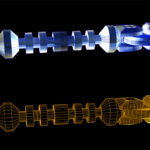Artificial intelligence is revolutionizing content creation, with some experts forecasting that 90% of online content may be AI-generated by 2026. Naturally, this is sparking intense legal debate around copyright and fair use, which is of particular interest to Ludwig APC and our intellectual property clients.
One of the most significant and relevant cases is the ongoing lawsuit against Meta Platforms—parent of Facebook, Instagram, WhatsApp, Messenger, and others—which challenges the company’s use of copyrighted materials to train its AI models. This case has the potential to set a precedent that impacts content creators, publishers, and AI developers around the globe.
Overview of Meta Lawsuit
Like many AI companies, Meta has trained its large language models using extensive text data from various sources. This includes copyrighted books. The lawsuit, filed by several authors, alleges that Meta used copies of their works without permission. The authors argue that this constitutes copyright infringement, while Meta maintains that its AI training falls under the “fair use” doctrine, which allows limited use of copyrighted material without permission under certain circumstances.
Recently, Judge Vince Chhabria expressed skepticism about Meta’s fair use defense claim, questioning whether it is fair use to allow companies to use “copyright-protected material to create a product that is capable of producing an infinite number of competing products,” with the potential to “obliterate” the market for original works. “I just don’t understand how that can be fair use,” he said.
What Is Fair Use?
Fair use is a legal principle that allows copyrighted material to be used without permission in specific cases, such as criticism, commentary, research, or education. Courts typically evaluate fair use based on four factors:
- Purpose and Character of the Use—Is the use transformative, meaning it adds new meaning or value?
- Nature of the Copyrighted Work—Is the original work factual or creative?
- Amount and Substantiality—How much of the copyrighted work is used?
- Effect on the Market—Does the use harm the market for the original work?
Meta argues that training AI models is transformative because the AI does not replicate books but instead learns patterns to generate new content. However, critics argue that AI-generated text competes with original works, potentially reducing demand for human-created content.
In the U.S. Copyright Office’s May 9 pre-publication version of a highly anticipated advisory report related to AI-generated content, the office did not provide a definitive answer as to whether it believes AI companies can claim fair use or not. Instead, the report outlines factors that could support or undermine fair use claims. While it does not establish law, the report is important because it could influence future court cases and legislative decisions.
Implications for Content Creators & AI Companies
If AI models trained on copyrighted works can generate competing content—essentially saturating the market with similar works derived from training on copyrighted material from other artists—this could fundamentally alter the creative landscape for content creators of all types: authors, musicians, filmmakers, etc. This raises numerous ethical considerations surrounding fair use, artistic authenticity, compensation for the use of copyrighted materials, and broader economic impact on artists.
The Meta case could shape how courts interpret fair use in AI training.
- If Meta loses, AI companies may need to license copyrighted materials, creating new revenue streams for content creators.
- If Meta wins, AI firms will likely continue using copyrighted content without compensation.
Some experts suggest that AI companies could establish licensing agreements with content creators, ensuring fair compensation while allowing AI development to continue. This could lead to new business models where creators monetize their work through AI partnerships.
What’s Next?
As the Meta lawsuit continues to unfold, Ludwig APC will continue monitoring developments. In the meantime, content creators should stay informed and explore ways to protect their work. Whether through licensing agreements, legal reforms, or ethical AI development, the future of fair use will be shaped by ongoing debates, shifting industry standards, and pivotal court rulings. Stay tuned.
Let’s Work Together: Global Experience, Personal Focus
Ludwig APC can equip you with tools, knowledge, and expert guidance to position your IP for long-term success. Contact Ludwig APC today at (619) 929-0873 or [email protected] to arrange a free consultation to discuss your needs.



